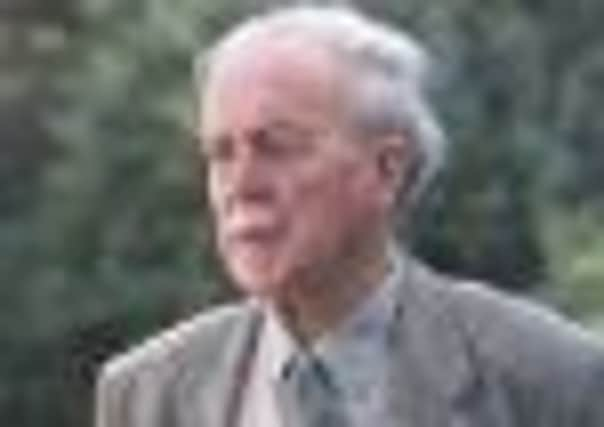Book review: Collected Poems of Sorley MacLean


His impact on me was no doubt heightened by the fact I first read him as a student, but both then and since I have always been impressed by his determination to say, in words, what can barely be expressed in them.
MacLean admired Gaelic song – “an exhalation from the people”, he called it – as much as any art form, but it was one in which he could not participate. Like the best of songs, MacLean’s poetry walks a plank between reserve and a full-throated lyric cry. The unsayable mounts up between lines and between poems and can achieve a state of music. There is also the moral seriousness and inevitability of MacLean’s poetry, much of it coming to him in the form of dreams. It is a voice unmediated by social conformity, and it has the intensity of poetry which survives despondency, war and schoolteaching to reach paper.
Advertisement
Hide AdIt is often paradoxical as it cannot accept easy answers. The Western Highlands are so integral to the plasticity of his work that I have found myself regretting the lack of a poet in other parts of the Highlands to make geology human.
Last year saw the publication of Peter Mackay’s monograph, Sorley MacLean, following Máire Ní Annracháin’s Aisling agus Tóir in Irish in 1992 and Raymond Ross’s and Joy Hendry’s Critical Essays in 1986. This year saw Birlinn publish the complete collected poems, Caoir Gheal Leumraich (sic)/ White Leaping Flame, edited by Christopher Whyte and Emma Dymock. The book is a fitting monument to his hundredth year, a handsome hardback, expanded from O Choille gu Bearradh/From Wood to Ridge of 1989 by a third again, to contain all of MacLean’s known poetry, and hitherto uncollected, untranslated and unpublished items.
It is a matter of great pride and importance to have the original sequence of Dàin do Eimhir restored and complete, and to have the long poem, “An Cuilithionn”, compared in its 1939 and 1989 versions. (Both these texts Whyte has published with detailed annotations for the ASLS in 2002 and 2011 respectively.) It has long been Whyte’s ambition that the poems should be presented in their original form, and he sees his task as editor “to restore its strangeness to MacLean’s poetry”.
I reeled a little at his accusations of deception on MacLean’s part in suppressing some of the poems in Dàin do Eimhir and some of the passages of “An Cuilithionn”, in the first instance in the context of an abortion, and in the second, in the context of the poet’s changing perceptions of Stalin and the Red Army. Artistic integrity must surely yield to discretion during the lifetime of those involved. The inclusion of 28 poems which the poet chose not to publish himself I feel confirms his good taste, as their emotion is mostly crude and un-nuanced. While they exist in the public domain in manuscript, their inclusion here is a democratic principle, but they do not add to the standing of his work – though they perhaps show part of the process.
Whyte speaks of the “colonialist appropriation” of Heaney and James Campbell, who, while not comprehending the Gaelic, impute meaning to MacLean’s voice alone. His point is justified to some extent, but I don’t think it should be overlooked how Gaelic an imagination MacLean has, for all his internationalist outlook in politics, art and philosophy. John Purser has compared MacLean’s voice production to that used in the recitation of Fenian lays and of Greek epic. I expect Heaney understood the otherworldly trajectory of the poet in Gaelic culture. It is no surprise that MacLean encounters his co-choisiche, or double, in the wilderness of the Cuillin, on whose inhospitable peaks the tree of his creativity flourishes.
He also has a sexualized relationship with nature springing entirely from the Gaelic conceptualisation of human society and nature. Nature is the nurturing lover of the “Woods of Raasay”, but she is also the demonic and destructive lover of the Cuillin, her “mother-breasts of the world/ erect with the world’s concupiscence” and the “green bitch of death” encountered in the “Cave of Gold”. She is the ultimate source of creativity for piper and poet alike. Hero and artist must take risks to make a mark in human terms against the eternal indifference of nature. I suggest that it is from such an essentially Gaelic perspective that MacLean’s eye ranges over Europe.
• Sorley MacLean: Collected Poems, Polygon, £25.